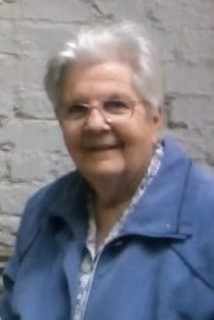Seeking New Ways in the Healing Mission of Jesus
Creative Fidelity
by Sr. Brigid Corrigan MMM England/Tanzania 01.03.2022
 The urgent call from the ‘high dependency ward’ came early in the morning. Along with others, I made my way to find a young boy, Sospeter, 15 yrs of age, in a deep coma. Swift examination, resuscitation and essential laboratory tests revealed that Sospeter was in a diabetic coma. Diabetes and other non-infectious diseases,were appearing in Tanzania at an alarming rate in the 1970s and 1980s. As Medical Missionaries of Mary, our medical work was constantly changing.
The urgent call from the ‘high dependency ward’ came early in the morning. Along with others, I made my way to find a young boy, Sospeter, 15 yrs of age, in a deep coma. Swift examination, resuscitation and essential laboratory tests revealed that Sospeter was in a diabetic coma. Diabetes and other non-infectious diseases,were appearing in Tanzania at an alarming rate in the 1970s and 1980s. As Medical Missionaries of Mary, our medical work was constantly changing.
This was in response to the different patterns of diseases and to the call of the World Health Organisation to embrace Primary Health Care (PHC) through the Declaration of Alma Ata in 1978. Simultaneously, as PHC was embraced, the need was seen for more specialized health work. This was in the areas of psychology, mental health, counselling, spiritual and pastoral care, both within and outside of our existing MMM medical facilities. These changes actually strengthened our fidelity to Jesus’ Healing ministry, while helping us to express our values in different and more creative ways.
One of the changes for MMM was a move into tertiary care. This is moving from primary care to more specialized work.
So, during my training as a specialist physican, I came to care for Sospeter. He came in from a rural village about 40 miles from the Hospital, attended a local school and, at home, helped on the family farm. Emergency treatment brought him out of the coma and this was followed by immediate education about diabetes. How was he going to manage with daily injections of insulin, regular food and attendances at the hospital? We need never have worried. Sospeter readily embraced his life changing situation and over many years regularly attended the diabetic clinic, usually the first in the queue! His clinic day started at 4 am, by collecting firewood, making a fire to boil water to sterilize his syringe and to cook porridge. After his insulin injection and porridge, he set out on a 10 mile walk from his home to the main road. There he waited for a bus to bring him into Mwanza. Then he climbed the mighty hill to the hospital and greeted us all at the clinic door!
Sospeter remained healthy and in good diabetic control. In later years I heard that he had married and raised his family.
Sospeter’s ingenuity, gratitude and good health reinforced our belief that seeking ‘new ways’ of being and doing expresses the message of the Gospel well. It is part of the creative fidelity which keeps our commitment fresh and alive.
SEE ALL BLOG POSTS
